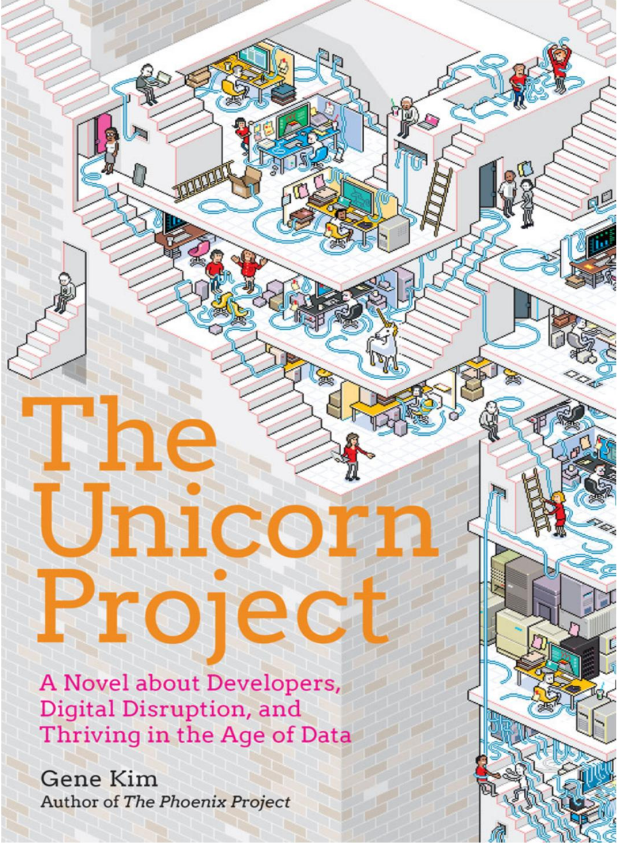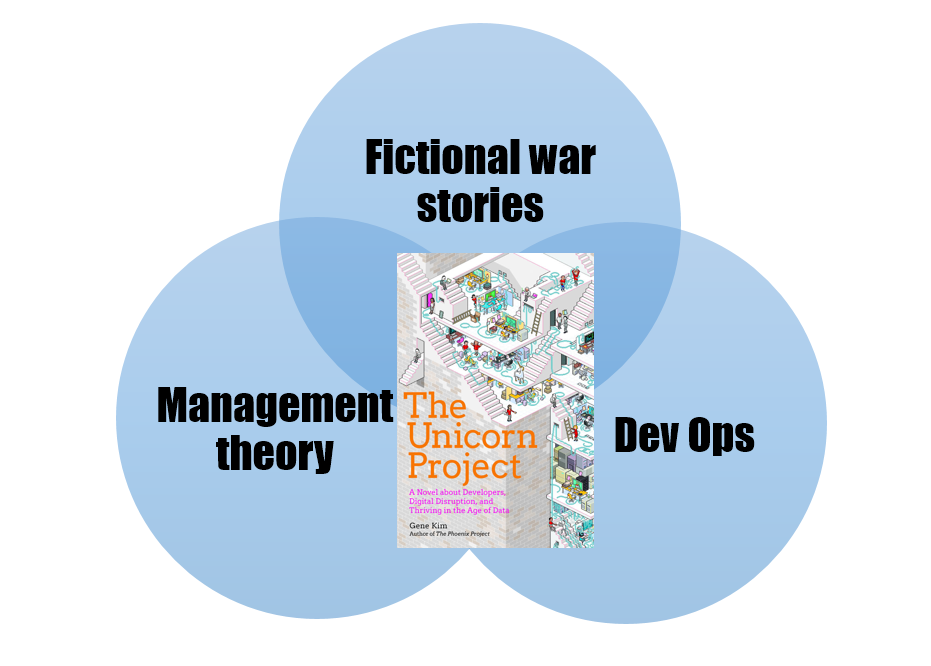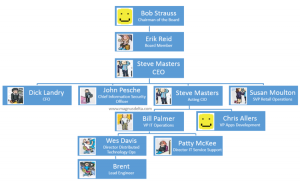When I read The Phoenix Project last year, I was smitten. I loved the combination of using fiction to describe how to apply — management and DevOps — theory to true to life situations. So when the publisher asked if I wanted to review the follow-up, I didn’t hesitate. And I can safely say The Unicorn Project is just as much fun as its predecessor.

This fiction book takes place in the same universe as The Phoenix Project. Actually: the same company and even the same timeline. However the protagonist this time is female — Maxime Chambers — which is a welcome change.
The Unicorn Project builds a fictionalised business war story around DevOps theory.
A large incumbent auto parts manufacturer struggles to keep up with changing markets. And the hero of the story is given a thankless project and is told to keep her head down. But she doesn’t! She assembles a team and guided by the mysterious Erik Reid and his Five Ideals (and later the Three Horizons) she sets out to change the course of her project — and subsequently the company!
The reason why I love it so much, is because even though it is fiction the described situations are just too real. I know them all too well. And The Unicorn Project provides insight for how to deal with these situations. It does so by applying the Five Ideals.
Five Ideals
The main plot is built around seeing the application of these ideals unfold and their beneficial consequences.
Gene Kim has defined the following Five Ideals:
- The First Ideal is Locality and Simplicity
- The Second Ideal is Focus, Flow, and Joy
- The Third Ideal is Improvement of Daily Work
- The Fourth Ideal is Psychological Safety
- The Fifth Ideal is Customer Focus
I will not go into detail about the definition and application of the Five Ideals — you should read the book! — but you can take an educated guess from their description what they mean.
And here is the author himself, giving some background information:
I’ve identified values and principles I call the Five Ideals to frame today’s most important IT challenges impacting engineering and business. … My main objective is to confirm the importance of the DevOps movement as a better way of working, and delivering better value, sooner, safer, and happier. I do this by addressing what I call the invisible structures, the architecture, needed to enable developers’ productivity and to scale DevOps across large organizations.
Gene Kim
Plot and references

Saying there is a happy ending, is probably not a spoiler. The plot is the vehicle for carrying and embodying the DevOps concepts. My only critique is that the book is so chuck full of management and pop cultural references that their application to the story sometimes feel contrived. But not to a fault.
(And apart from that, I kept expecting the CISO to show up and complicating things. But he didn’t?)
I really love the References in the back of the book. I’m a sucker for references and further reading. And I now have a large YouTube playlist with talks about concepts in the book.
Functional programming
Of all the references and concepts mentioned, one in particular popped out: the author’s clear love for functional programming, and Clojure in particular. So I did some digging and sure enough, Gene Kim loves Clojure!
Here he is explaining his love for Clojure:
Bonus: the references from chapter 7 point to a talk by Rich Hickey (creator of Clojure), which is just a phenomenal talk.
Reading The Unicorn Project, will leave you smarter and energized to take on challenges you or your company might face. Go read it!

